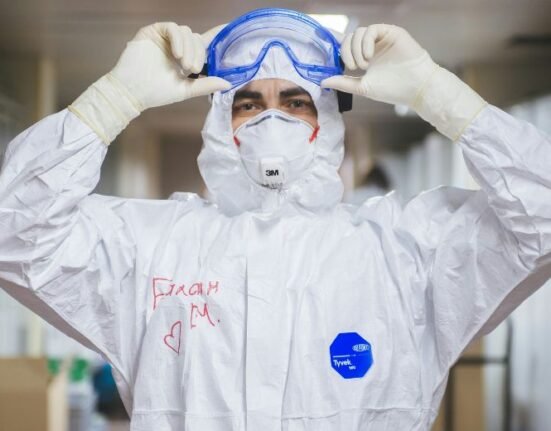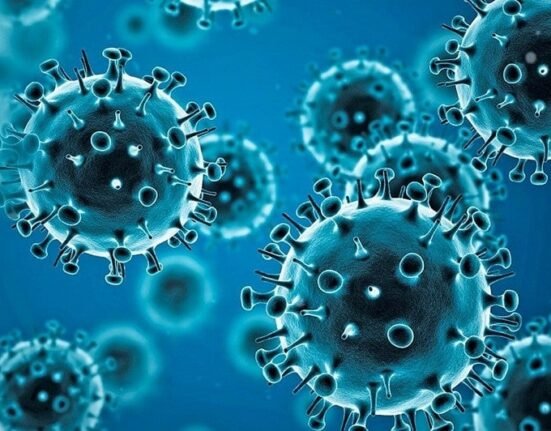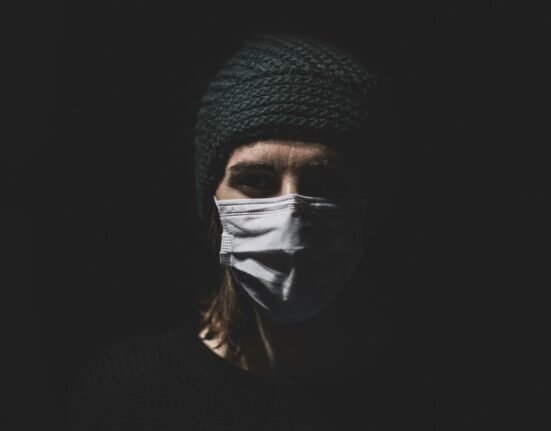HQ Team
December 6, 2022: An off-patent drug used to treat lung disease has been identified by scientists at the University of Cambridge as a potential medicine to fight the Covid-19 virus and its variants.
The research involved a unique mix of ‘mini-organs,’ donor organs, animal studies and patients, according to a university statement.
“We’re interested in finding alternative ways to protect us from SARS-CoV-2 infection that are not dependent on the immune system and could complement vaccination,” said Dr Fotios Sampaziotis, who led the research.
“We’ve discovered a way to close the door to the virus, preventing it from getting into our cells in the first place and protecting us from infection.”
Scientists used an existing tablet to treat a type of liver disease, which can ‘lock’ the doorway by which SARS-CoV-2 enters our cells, a receptor on the cell surface known as ACE2.
A molecule known as FXR, which is present in large amounts in bile duct organoids, directly regulates the viral ‘doorway’ ACE2, effectively opening and closing it. Dr Sampaziotis had previously worked with organoids to study diseases of the bile ducts.
Organoids
Organoids are clusters of cells that can grow and increase in culture, taking on a 3D structure that has the same functions as the part of the organ being studied.
The scientists then proved that ursodeoxycholic acid (UDCA), an off-patent drug used to treat a form of liver disease known as primary biliary cholangitis, ‘turns down’ FXR and closes the ACE2 doorway.
The team showed they could use the same approach to close the ACE2 doorway in ‘mini-lungs’ and ‘mini-guts’ – representing the two main targets of SARS-CoV-2 – and prevent viral infection.
As this drug targets the host cells and not the virus, it should protect against future new variants of the virus as well as other coronaviruses that might emerge, according to the statement.
The next step was to show that the drug could prevent infection in lab-grown cells and living organisms.
Hamsters
They took the help of Professor Andrew Owen from the University of Liverpool to show that the drug prevented infection in hamsters or rodents exposed to the virus.
The method is used as the ‘gold-standard’ model for pre-clinical testing of drugs against SARS-CoV-2. The liver drug protected the hamsters from the delta variant of the virus, which was partially resistant to existing vaccines at the time.
In the next stage, the researchers wanted to see if their findings on hamsters held true in human lungs exposed to the virus.
The team took a pair of donated lungs unsuitable for transplantation.
They kept them breathing outside the body with a ventilator and used a pump to circulate blood-like fluid through them to keep the organs functioning while they could study them.
Scientists gave one lung the drug, but both got exposed to SARS-CoV-2. The lung that received the drug did not become infected, while the other did.
Organ transplantation
“This is one of the first studies to test the effect of a drug in a whole human organ while it’s being perfused, professor Andrew Fisher from Newcastle University, who was part of the research, said.
“This could prove important for organ transplantation – given the risks of passing on COVID-19 through transplanted organs; it could open up the possibility of treating organs with drugs to clear the virus before transplantation.”
The scientists moved to human volunteers in the final phase.
As it was impossible to run a full-scale clinical trial, the researchers looked at data on COVID-19 outcomes from two independent cohorts of patients.
They compared those individuals who were already taking UDCA for their liver conditions against patients not receiving the drug. They found that patients receiving UDCA were less likely to develop severe COVID-19 and be hospitalised.
80 volunteers
“We recruited eight healthy volunteers to receive the drug,” said Professor Ansgar Lohse from the University Medical Centre Hamburg-Eppendorf in Germany, who was a part of the team.
“When we swabbed the noses of these volunteers, we found lower levels of ACE2, suggesting that the virus would have fewer opportunities to break into and infect their nasal cells – the main gateway for the virus.”
“This unique study allowed us to do translational science, using a laboratory finding to address a clinical need directly,” said Teresa Brevini, first author from the University of Cambridge.
The tablet costs less and can be produced in large quantities fast and efficiently stored or shipped, which makes it easy to deploy during outbreaks – especially against vaccine-resistant variants rapidly.
It might be the only line of protection while waiting for new vaccines. According to the statement, if confirmed in more extensive clinical trials, this could provide a vital drug for protecting those individuals for whom vaccines are ineffective or inaccessible.








